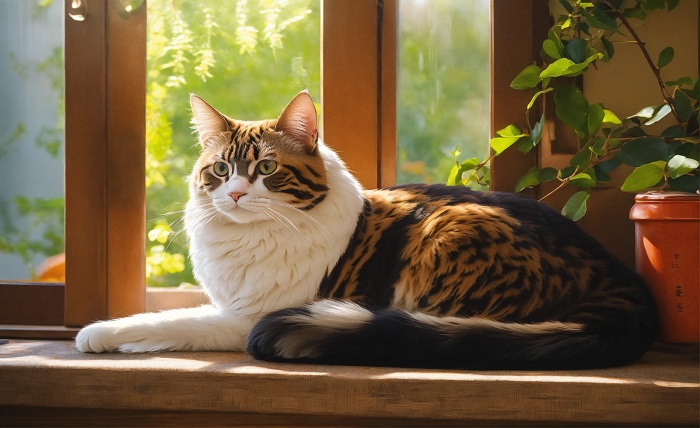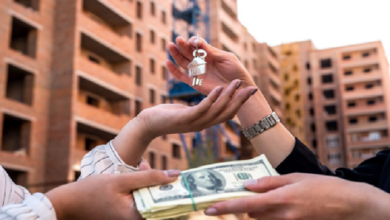How Much Does a Maine Coon Price in 2024?

Maine Coons are one of the most popular cat breeds in the world. They are known for their large size, fluffy coats, and friendly personalities. But how much does a Maine Coon price? And what factors affect the price of these gentle giants?
What is the Average Cost of a Maine Coon?
The average cost of a good quality Maine Coon kitten is around $400 to over $2,000, according. For superior pedigrees, Maine Coon breeders can charge as much as $2,500 to $3,500. This may even go higher for rare-colored kittens.
However, the price of a Maine Coon cat can vary depending on several factors, such as the quality, health, vaccination, spaying/neutering, age, and coat color of the cat. We will discuss these factors in more detail below.
What Factors Affect the Price of a Maine Coon?
There is no fixed price for a Maine Coon cat, as different breeders may have different criteria and standards for their cats. However, some of the common factors that affect the price of a Maine Coon are:
Quality
The quality of a Maine Coon cat refers to its bloodline, pedigree, and show potential. A Maine Coon kitten with a superior bloodline that can be used for breeding or showing will be priced higher than one that will only serve as a household pet. A Maine Coon kitten with a purebred certificate from a reputable cat association will also cost more than one without.
Health
The health of a Maine Coon cat is the most important factor to consider when buying one. A healthy Maine Coon kitten should be free from any congenital diseases or genetic defects that may affect its lifespan or quality of life. Some of the common health issues that affect Maine Coons are hip dysplasia, hypertrophic cardiomyopathy, polycystic kidney disease, and spinal muscular atrophy.
A responsible breeder will test their Maine Coon kittens for these conditions and provide health certificates and guarantees to the buyers. A Maine Coon kitten with complete veterinary checks and health records will cost more than one without.
Vaccination
Vaccination is another essential aspect of a Maine Coon kitten’s health. A Maine Coon kitten should have the appropriate vaccination for its age to protect it from various diseases and infections. Some of the common vaccines that a Maine Coon kitten should receive are rabies, feline distemper, feline herpesvirus, feline calicivirus, and feline leukemia virus.
Spaying/Neutering
Spaying or neutering a Maine Coon cat is a surgical procedure that prevents it from reproducing. This has many benefits for the cat’s health and behavior, such as reducing the risk of cancer, infections, aggression, spraying, and roaming. It also helps control the population of unwanted cats and reduces the demand for unethical breeding.
A non-spayed or non-neutered Maine Coon cat will cost more than an altered one, as it can still be used for breeding purposes. However, most reputable breeders will only sell their Maine Coon kittens as spayed or neutered pets, unless they are intended for show or breeding.
Age
The age of a Maine Coon cat also affects its price. Maine Coon kittens are more expensive than adult cats, as they require more care and attention from the breeders. They also have more potential for growth and development, which makes them more desirable for buyers.
Older Maine Coon cats, on the other hand, are cheaper and easier to maintain. They may also have more established personalities and temperaments, which can be a plus or a minus depending on the buyer’s preference. Some breeders may offer older or retired Maine Coon cats for adoption at a lower cost or even for free.
Coat Color
The coat color of a Maine Coon cat is another factor that influences its price. Maine Coon cats come in a variety of colors and patterns, ranging from solid to tabby to tortoiseshell. Some of the most common colors are black, white, orange, and blue.
However, some colors are more rare and difficult to breed, such as silver, smoke, cream, and red. These colors may command a higher price than the more common ones. The same goes for patterns, such as bicolor, calico, and mackerel.
How to Find a Reputable Maine Coon Breeder?
If you are interested in buying a Maine Coon cat, you should do your research and find a reputable breeder who can provide you with a healthy and well-socialized kitten. Here are some tips on how to find a good Maine Coon breeder:
– Check the website of the [Cat Fanciers’ Association] or other reputable cat associations for a list of registered Maine Coon breeders in your area.
– Visit the breeder’s website or social media pages and look for testimonials, reviews, and photos of their cats and kittens.
– Contact the breeder and ask them about their breeding practices, policies, and guarantees. Ask them for references from previous buyers or veterinarians who can vouch for their cats’ health and quality.
– Visit the breeder’s cattery and meet the parents and the kittens in person. Observe the environment, the cleanliness, and the behavior of the cats. Ask the breeder for the kittens’ health certificates, vaccination records, and pedigree papers.
– Compare the prices and the quality of different breeders and choose the one that offers the best value for your money. Avoid breeders who offer Maine Coon kittens at very low or very high prices, as they may be scams or unethical.
What are the Other Costs of Owning a Maine Coon?
Besides the initial cost of buying a Maine Coon kitten, you should also consider the other costs of owning and caring for a Maine Coon cat. These include:
– Food: Maine Coon cats are large and active, and they need a high-quality and balanced diet to meet their nutritional needs. You should expect to spend around $30 to $50 per month on food for your Maine Coon cat, depending on the brand and the quantity.
– Litter: Maine Coon cats are also big and heavy, and they need a large and sturdy litter box to accommodate their size. You should also use a good quality litter that can absorb the odor and moisture of their waste. You should expect to spend around $10 to $20 per month on litter for your Maine Coon cat, depending on the type and the frequency of changing.
– Toys: Maine Coon cats are playful and curious, and they need a variety of toys to keep them entertained and stimulated. You should provide them with toys that can challenge their intelligence, such as puzzles, teasers, and interactive toys. You should also provide them with toys that can satisfy their hunting instincts, such as mice, birds, and balls. You should expect to spend around $10 to $20 per month on toys for your Maine Coon cat, depending on the quality and the durability.
– Grooming: Maine Coon cats have long and thick coats that need regular grooming to prevent matting, tangling, and shedding. You should brush your Maine Coon cat at least once a week, and trim their nails and clean their ears and eyes as needed. You should also take your Maine Coon cat to a professional groomer once or twice a year for a thorough bath and haircut. You should expect to spend around $50 to $100 per year on grooming for your Maine Coon cat, depending on the frequency and the service.
– Veterinary: Maine Coon cats need regular veterinary check-ups and preventive care to ensure their health and well-being. You should take your Maine Coon cat to the vet at least once a year for a physical exam, blood tests, and vaccinations. You should also take your Maine Coon cat to the vet whenever they show signs of illness or injury. You should expect to spend around $100 to $200 per year on veterinary care for your Maine Coon cat, depending on the condition and the treatment.
– Insurance: Maine Coon cats are prone to some health issues that may require expensive medical care and surgery. You may want to consider getting pet insurance for your Maine Coon cat to cover some of the costs of unexpected emergencies and accidents. You should expect to spend around $20 to $50 per month on pet insurance for your Maine Coon cat, depending on the coverage and the deductible.
Conclusion
Maine Coon cats are wonderful pets that can bring joy and companionship to your life. However, they are also expensive and high-maintenance, and you should be prepared to invest both time and money to care for them properly.




